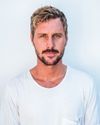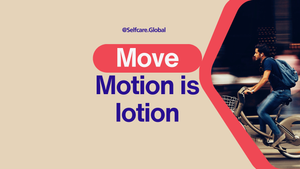The Movement Revolution Your Body Is Waiting For
When I was treating thousands of patients in clinical practice, I noticed something remarkable: those who incorporated consistent, intentional movement into their lives healed faster and more completely than those who remained sedentary. It wasn't about intense workouts or athletic achievements – it was about honoring the body's fundamental need for movement as medicine.
What I've discovered through years of research and practice is that movement isn't just something we "should" do – it's quite literally the medicine our bodies and minds are designed to receive daily. In my book "Lifestyle Medicine For the People", I explore how physical activity communicates with every cell in your body, sending signals that trigger healing, renewal, and transformation.
The 3 Major Challenges We're Here to Solve Together
- The "Exercise as Punishment" Mindset: Most people approach movement as something they must endure to compensate for perceived failings (eating "too much" or looking "wrong"). This creates resistance and unsustainable motivation.
- The "No Time" Narrative: Many believe they need lengthy gym sessions to benefit from movement, creating an artificial barrier between themselves and this natural medicine.
- The "All or Nothing" Approach: The perfectionist trap leads to a cycle of intense activity followed by complete abandonment, preventing the consistent medicine dosing that creates lasting change.
Would you be open to exploring a different approach? Our SelfCare Community is filled with people just like you who have transformed their relationship with movement from obligation to medicine.
The SelfCare Framework: Learn-Do-Embody-Teach
Understanding movement as medicine requires a transformational journey that goes beyond simply knowing what to do. Let's explore how this medicine works through our four-part framework:
1. LEARN: Movement Speaks Your Body's Language
Movement isn't just about burning calories or building muscle. Research shows physical activity creates a cascade of signaling molecules that communicate directly with your genes, nervous system, and cellular repair mechanisms. Harvard researchers have demonstrated that movement reduces inflammatory markers, improves neuroplasticity, and enhances mitochondrial function – acting as a literal pharmacy within your body.
When you take the driver's seat in understanding how movement heals, you begin recognizing that your body is designed to move throughout the day, not just during dedicated "exercise" times.
2. DO: The 1% Movement Revolution
Knowledge without action remains theoretical. The SelfCare approach follows the Kaizen philosophy – improving by just 1% each day compounds to create a 37x transformation over a year.
Start with movement "snacks" – brief 3-5 minute movement breaks throughout your day. Research from the University of Texas shows these micro-sessions significantly improve metabolic health, even more effectively than a single longer workout.
Try this: Set three alarms on your phone today. When each sounds, stand up and perform 1-2 minutes of natural movement – stretching, walking, or gentle mobility. This small step initiates the medicine's effects without requiring major life restructuring.
Remember, this journey isn't about becoming a victim to rigid exercise regimens – it's about authoring your own movement story with the hero's mindset of progressive improvement.
3. EMBODY: Becoming Someone Who Naturally Moves
We become the energy, vibration, and frequency of what we consistently do. When movement shifts from something you "do" to something you "are," transformation becomes effortless.
This identity shift happens through environmental design more than willpower. Arrange your home and workspace to make movement the path of least resistance – keep comfortable shoes by your desk, create a dedicated movement space in your home, and remove barriers between you and activity.
The most powerful embodiment practice is to declare: "I am someone who moves naturally throughout my day" rather than "I need to exercise more." This subtle shift serves as a compass for daily decisions, allowing you to serve yourself first so you can then help others from a place of overflow.
4. TEACH: The Movement Ripple Effect
The most powerful way to spread the medicine of movement is by authentically embodying it yourself. When we move with joy instead of obligation, others naturally become curious about our approach.
You don't need to preach or push – simply invite others to join you for a walking meeting, share how movement has transformed your energy levels, or create spaces where movement happens naturally. The ripple effect of one person moving with intention extends far beyond what we can measure.
In our SelfCare Community, members share stories of how their personal movement practices have transformed their families, workplaces, and neighborhoods without explicit instruction – simply through the magnetic pull of embodied wellbeing.
Your Natural Movement Prescription
The Science Behind Moving Naturally
The most healing forms of movement aren't necessarily what the fitness industry promotes. Anthropological research reveals humans evolved moving frequently at low intensity, occasionally at moderate intensity, and rarely at high intensity. This natural movement pattern – walking, carrying, squatting, reaching – triggers specific genetic expressions that manufactured exercise often misses.
Stanford University studies show that natural movements in outdoor environments provide significantly greater mental health benefits than identical movements performed indoors. This suggests our bodies respond uniquely to the combined medicine of movement and nature.
The key is progressing from seeing movement as something you must force yourself to do, to recognizing it as something your body naturally craves when operating optimally. This perspective shift alone transforms movement from chore to medicine.
When you understand your body's evolutionary design, you recognize that the "keys are in your hands" to access this medicine anytime, without special equipment, memberships, or expertise. This driver mindset empowers you to create movement opportunities rather than waiting for them.
Practical Implementation: Your 1% Movement Journey
Start where you are with these progressive steps:
- Begin with 5-minute "movement snacks" three times daily, focusing on what feels good rather than what "works."
- Identify movement barriers in your environment and remove one each week – perhaps by keeping walking shoes in your car, scheduling walking meetings, or creating a morning mobility routine.
- Track how movement affects your mood, energy, and cognition rather than calories or metrics, reinforcing the medicinal effects.
- Gradually extend natural movement periods, prioritizing consistency over intensity.
- Create social movement opportunities that strengthen both your body and your community connections.
- Design your environment to make movement the default, not the exception – standing desks, floor seating options, or walking paths.
With this approach, you transform the victim narrative ("I don't have time to exercise") into the hero journey ("I'm creating a movement-rich life that serves my wellbeing").
The Movement Identity Transformation
The most powerful aspect of movement medicine is its ability to transform your self-concept. As you consistently move and experience benefits, you naturally shift from "someone trying to exercise more" to "someone who moves as naturally as breathing."
This identity change creates a positive feedback loop where movement no longer requires willpower or external motivation. You begin organizing your life around opportunities for beneficial movement rather than trying to fit movement into an otherwise sedentary existence.
When you embody this medicine, you serve from overflow rather than depletion. Movement becomes the foundation that fills your cup, enabling you to show up fully for others without sacrificing your wellbeing.
Your Next Step: Start Your Movement Medicine Practice Today
The journey of transformation begins with a single step – literally. Would you be willing to take a small action right now? Stand up, stretch in whatever way feels good for 60 seconds, and notice how your body responds. This tiny implementation of movement medicine begins rewiring your relationship with physical activity.
Remember, the most powerful medicine isn't found in elaborate exercise programs or equipment – it's found in returning to the natural movement patterns your body is designed for. By embracing the driver mindset, authoring your own movement story, and serving from a movement-filled cup, you create the foundation for extraordinary wellbeing.
Ready to deepen your understanding and implementation of movement medicine? The SelfCare Book provides a complete framework for integrating all 12 medicines of wellbeing, with movement as a cornerstone practice.
Want to connect with others on this journey? Join our SelfCare Community where we're creating spaces for natural transformation together. Remember, connection is medicine too – and when we move together, the benefits multiply.
Key Research References:
- Pedersen, B. K., & Saltin, B. (2015). Exercise as medicine - evidence for prescribing exercise as therapy in 26 different chronic diseases. Scandinavian Journal of Medicine & Science in Sports, 25, 1-72.
- Ratey, J. J., & Hagerman, E. (2013). Spark: The revolutionary new science of exercise and the brain. Little, Brown Spark.
- Stamatakis, E., et al. (2021). Short and sporadic vs regular and adequate: What is the right dose of physical activity for health? British Journal of Sports Medicine, 55(18), 1-2.
REFERENCES
This is directly referenced from the Amazon best-selling SelfCare Book "Lifestyle Medicine For the People" by Rory Callaghan. If you would like to read more content like this, grab the free online chapters of the book or a hard copy.
We have done our best to reference everyone's expert opinions, peer-reviewed science, and original thoughts, all references available here and referenced in the text.
We also understand that most thoughts are not our own and there is a collective unconsciousness, unconsciousness, and universal mind stream of energy that is always at work. How our references are sorted and filtered is here.
This article is for informational purposes only and should not replace professional medical advice. Always consult with your healthcare provider before beginning any new health regimen.




